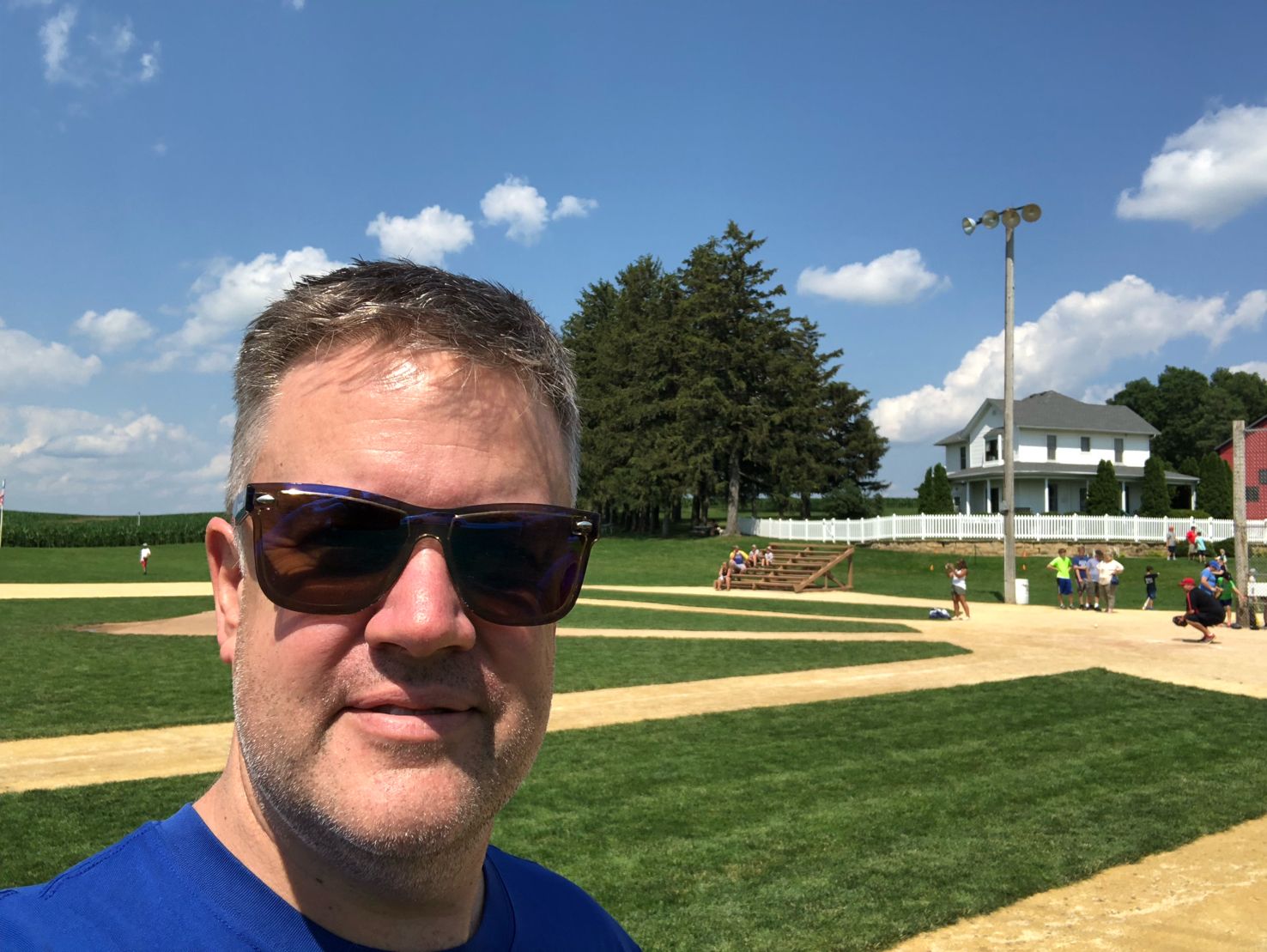studio (un)scripted: 5 questions with chris thiede.
CHRIS THIEDE, INTEGRATED MARKETING STRATEGIST (and one of our favorite writers)
The Studio is my happy place, where is yours?
It’s not one place, but any place where I can be doing something in the moment or focused on the task at hand, rather than worrying about work or the world. I used to get that from sailing on Lake Michigan, particularly in races. Each of us on the boat had to be focused on our jobs, doing our part to make the boat go faster. Being distracted was impossible.
Since I moved to The South, I don’t sail much anymore, and that feeling I used to get is hard to replicate. I can sort of get it from running, or watching my son’s basketball games, or going to the beach and watching the tide. But nothing really beats being on a sailboat.
I’ve kept up with you over the years mostly because you’re funny, but also because you post relevant and engaging content that taps into current pop culture trends, marketing and communications conversations and your own personal (and fun to follow) journeys. How do you decide what to share and when to post?
I don’t really have a formula. I just try to share what feels right, and what will have some kind of value for my audience. I try to look at the subject of marketing and branding from as many different angles as possible. I interview people who are good at certain aspects of it and try to glean as many lessons from them as I can. I also try to let my mind wander occasionally, and capture ideas as best I can if I’m not in a place to start writing. It’s really all about keeping an open mind and being observant, looking for common threads and themes, and seeing if you can make them relatable and interesting to the audience.
As for when I post, 11:30am, every weekday, on LinkedIn.
You’ve worked in-house, at agencies and for yourself. Is there a common thread that applies to each? If so, what is it and how is that practice of flexibility best learned by young professionals?
It’s hard to say, because when I was at each of those places, I was in very different phases of my life. I think the best advice I can offer to young professionals is to know what you do best and know your value. During my career, I learned that working for myself is really the only way I can be happy. But it took me 25 years to really come to grips with that.
Working for myself would have been nearly impossible in the late 90s when I started my career. But it’s much easier now. There is so much young people can take advantage of to get their name out there and in front of people who could hire them or pay for their services. But it still takes that self-awareness to understand what you’re good at and how it might have value to someone else.

In knowing you and hearing stories from your professional journey, there are a lot that I could choose from to consider “favorites”. What is a favorite memory of yours, working as an adaptable strategist?
A favorite memory is not from my time as a strategist, but from my time as a bartender. I was 22 years old, working at an upscale restaurant, and I learned a lot from the principal owner and general manager.
He would do just about anything for the customers, which is a must in the hospitality industry. One time the waitstaff pranked him by having someone call in to ask for a table, right before closing time, with bottles of wine and vodka on the table ready for them when they arrived. He started running around the restaurant, barking orders, before someone let him in on the secret. We all had a good laugh, but I also saw an uncommon dedication to customer service.
His loyalty the customer was second only to his loyalty to his staff. One night an especially rude table was abusing the servers, complaining about the food, and being loud and obnoxious. At the end of their meal, they demanded to talk to him to voice their complaints. He saw what was happening, and told them that their meal was on the house, but they were to never come back, as they were no longer welcome. The staff would have done anything for him, and it showed in the loyalty of most of our customers.
Shortly after I left that job, he died of a heart attack. He was in his mid-50s, I think. He was severely overweight, smoked constantly, and worked long hours in a stressful business so that he would be able to sell the restaurant and retire early. Your job, your career is important. But at the end of the day, it doesn’t really matter.
I learned more from that job than just about any other.
If you could ask me anything, what would it be?
I work primarily in B2B. You seem to have your finger on the pulse of social media and pop culture. What are some trends from your world that will spill over into the B2B world in the coming year?
Check out Chris’ LinkedIn page for great insights, funny quips and the latest trends.
